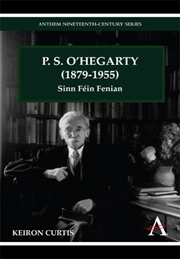Chapter Seven - The 1921 Anglo-Irish Treaty
from Part III
Published online by Cambridge University Press: 05 March 2012
Summary
More than the tradition of collective action started by O'Connell in the 1820s, more than the idealism of 1916, and more than the presence of an overarching authority in the Catholic Church, the civil war has had a formative infl uence on the Irish state that has not been matched by any other factor.
The challenge to Sinn Féin's leadership in 1921 was how to consolidate the revolution while preserving enough of the essential unity of the movement to make the settlement workable.
In 1919, American President Woodrow Wilson declared ‘self-determination’ the natural right of all would-be nations. However, despite sending delegates, Sinn Féin failed to gain a hearing at the post-war peace conference held that year, putting to rest hopes of securing international support in its campaign for Irish self-government. As O'Hegarty would later write:
It could not be won by diplomacy and international intrigue, because the only Great power which might be expected to support Ireland had defi nitely turned Ireland down and would do nothing to force England to agree to independence…'
Yet unlike many leading Sinn Féiners, O'Hegarty held reservations from the beginning over this abrupt shift in policy, namely for its redirecting Sinn Féin's energies away from the Irish people and outside the national self.
- Type
- Chapter
- Information
- P. S. O'Hegarty (1879–1955)Sinn Féin Fenian, pp. 105 - 120Publisher: Anthem PressPrint publication year: 2010



